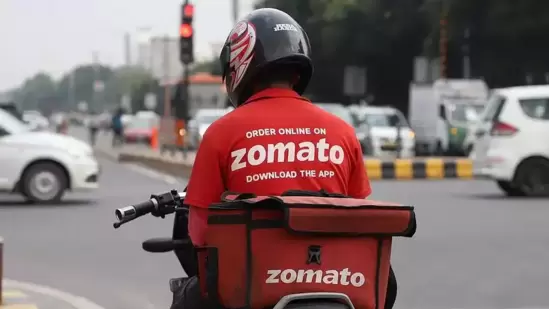‘Heartbroken and Frustrated’: MBA Graduate Shares Struggles with Zomato’s Low Salary Offer
An MBA graduate’s LinkedIn post about his dissatisfaction with Zomato’s job offer procedure went viral, igniting a heated discussion about corporate wage structures, the rising cost of living in urban India, and whether it’s appropriate to vent on social media. Public opinion has been split by the post, which is a moving description of the difficulties young professionals confront and emphasizes the widening gap between business policies and employee aspirations.
The Incident: A Tale of Disappointment
The MBA graduate shared his experience applying for an Associate position at Zomato’s Gurugram branch in his post. He was thrilled about the prospect at first, but he called the process “disheartening” and “frustrating,” especially because the corporation dismissed his attempts to bargain for a higher wage.
According to the graduate, the given wage was insufficient to pay for basic living expenditures in Gurugram, one of the priciest towns in India. According to reports, he received a blunt reaction to his attempts at negotiation: “Take it or leave it.” The absence of significant relocation assistance, with Zomato purportedly only offering short-term hotel accommodations and refusing to help with the security deposit for renting a place, exacerbated this feeling.
Breaking Down the Cost of Living
To support his argument, the graduate provided a detailed breakdown of his anticipated monthly expenses in Gurugram:
PG Accommodation: Rs 14,000 to Rs 20,000
Food: Rs 5,000
Electricity: Rs 2,000
Travel: Rs 4,000
After covering these basic expenses, he calculated that he would be left with just Rs 1,000 to Rs 2,000 for other needs. He expressed his frustration, questioning, “How does one survive, let alone save or grow, in such conditions?”
The post resonated with many young professionals who face similar struggles navigating the steep costs of urban life while trying to build their careers.
Social Media Reactions: A Divided Audience
The graduate’s post ended with a plea for employers to treat job seekers with respect. It garnered significant attention, with some users expressing solidarity and others offering criticism.
Voices of Support
Many LinkedIn users empathized with the graduate’s plight, calling out the larger systemic issues in India’s corporate landscape. One user commented, “Thank you for sharing your experience so honestly. It’s heartbreaking to see how many talented individuals face such challenges in the corporate world. Your plea for fairness and respect resonates deeply.”
Another wrote, “This highlights a glaring problem—companies expect employees to deliver excellence without providing the basic support needed to thrive.”
Criticism and Practical Advice
However, not everyone agreed with the approach of airing grievances online. Some warned that the post could harm the graduate’s professional prospects.
One user cautioned, “Buddy, I would suggest you delete this post immediately. Venting such frustrations on these platforms does more harm than good. There are other HRs looking at this, and you would be a strict no-go for them.”
Others offered practical, albeit blunt, advice. “Spend a year, rack up some experience, then jump to another company with a fatter paycheck and perks,” suggested another commenter. “Loyalty is overrated, and so is your current salary.”
The Broader Implications
The incident sheds light on two critical issues:
1. Rising Cost of Living
India’s urban centers, particularly cities like Gurugram, have become prohibitively expensive for many young professionals. The gap between entry-level salaries and living costs is forcing many to rethink their career choices and lifestyle expectations.
2. Employer-Employee Dynamics
The graduate’s experience also highlights a growing demand for empathy and support in the corporate world. Relocation packages, fair pay, and a respectful negotiation process are increasingly seen as non-negotiable by a new generation of workers who prioritize work-life balance and mental well-being.

The Debate: To Post or Not to Post?
The discussion has become much more difficult due to the LinkedIn post’s public nature. Some people think it’s courageous to point out company failings, while others think it’s unprofessional and ineffective.
This poses significant queries for young professionals: Is social networking the appropriate forum for addressing complaints at work? And how can they strike a balance between the necessity of voicing concerns and the possibility of harming their reputation in the workplace?


Comments are closed.